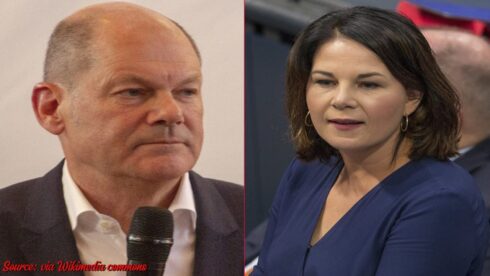German Foreign Minister Annalena Baerbock made headlines after walking out of a government meeting, marking a significant escalation in tensions within Germany’s coalition government. The disagreement arose when Chancellor Olaf Scholz blocked a proposed aid package for Ukraine, citing fiscal constraints and the need to prioritize domestic issues. Annalena Baerbock’s refusal to pose for the customary group photo symbolized her protest, shedding light on the growing divisions between her and the Chancellor over Germany’s stance on supporting Ukraine amidst the ongoing conflict.
Annalena Baerbock, a staunch advocate for international solidarity, has consistently championed increased military and humanitarian aid for Ukraine. Her actions reflect her commitment to upholding Germany’s responsibility as a global leader in defending democratic values. During the meeting, she reportedly emphasized the moral and geopolitical necessity of aiding Kyiv against Russian aggression. This bold stance has positioned Annalena Baerbock as a key figure in shaping Germany’s foreign policy, even as it places her at odds with Scholz’s more cautious approach.
A Silent Protest with Loud Implications
Annalena Baerbock’s refusal to join the customary group photo sent a strong and deliberate message of dissent. Sources close to her described the move as a reflection of her deep dissatisfaction with the Chancellor’s decision, which she believes undermines Germany’s international commitments.
This act of defiance underscores Annalena Baerbock’s growing influence as a principled leader unafraid to challenge the status quo. Political analysts suggest that her bold stance could resonate with voters who prioritize Germany’s role as a global defender of democracy and human rights.
Public Opinion Divided Over Annalena Baerbock’s Actions
The Foreign Minister’s walkout has sparked widespread debate among the German public. Supporters have praised her unwavering commitment to Ukraine, viewing her actions as a necessary step to hold the government accountable. Critics, however, argue that public displays of dissent could weaken Germany’s image of unity on the global stage.
Internationally, Annalena Baerbock’s actions have drawn attention, with Ukrainian officials expressing gratitude for her continued support. Some European allies have also rallied behind her, emphasizing the need for stronger collective efforts to aid Ukraine amidst ongoing conflict.
Coalition Tensions Reach Boiling Point
Annalena Baerbock’s public disagreement with Scholz reflects a deeper rift within Germany’s three-party coalition government. The Greens, represented by Annalena Baerbock, have often clashed with Scholz’s Social Democrats on foreign policy priorities, with the liberal Free Democratic Party (FDP) caught in the middle.
This incident adds to a growing list of disputes that have tested the coalition’s cohesion. Political observers warn that if these divisions persist, they could jeopardize the government’s ability to effectively address pressing domestic and international challenges.
Annalena Baerbock’s Vision for Germany’s Global Role
Annalena Baerbock’s actions are part of a broader vision for Germany as a proactive leader in global affairs. She has repeatedly called for stronger commitments to Ukraine, arguing that Germany’s position as Europe’s largest economy comes with a responsibility to uphold international law and democratic values.
Her defiance of Scholz’s decision signals a shift in Germany’s political discourse, with Annalena Baerbock emerging as a powerful advocate for a more assertive and principled foreign policy. Whether this incident will strengthen her influence or deepen coalition divisions remains to be seen.
A Defining Moment for Baerbock and German Politics
This dramatic episode marks a pivotal moment in Annalena Baerbock’s political career and Germany’s approach to the Ukraine crisis. As tensions within the government escalate, Baerbock’s bold stance underscores the urgency of addressing internal disagreements to maintain Germany’s credibility on the global stage.
Germany’s next steps will be closely watched, with Baerbock’s leadership likely to shape the country’s foreign policy decisions in the months ahead. Her actions have not only highlighted the importance of unwavering support for Ukraine but have also set a precedent for principled governance in challenging times.














